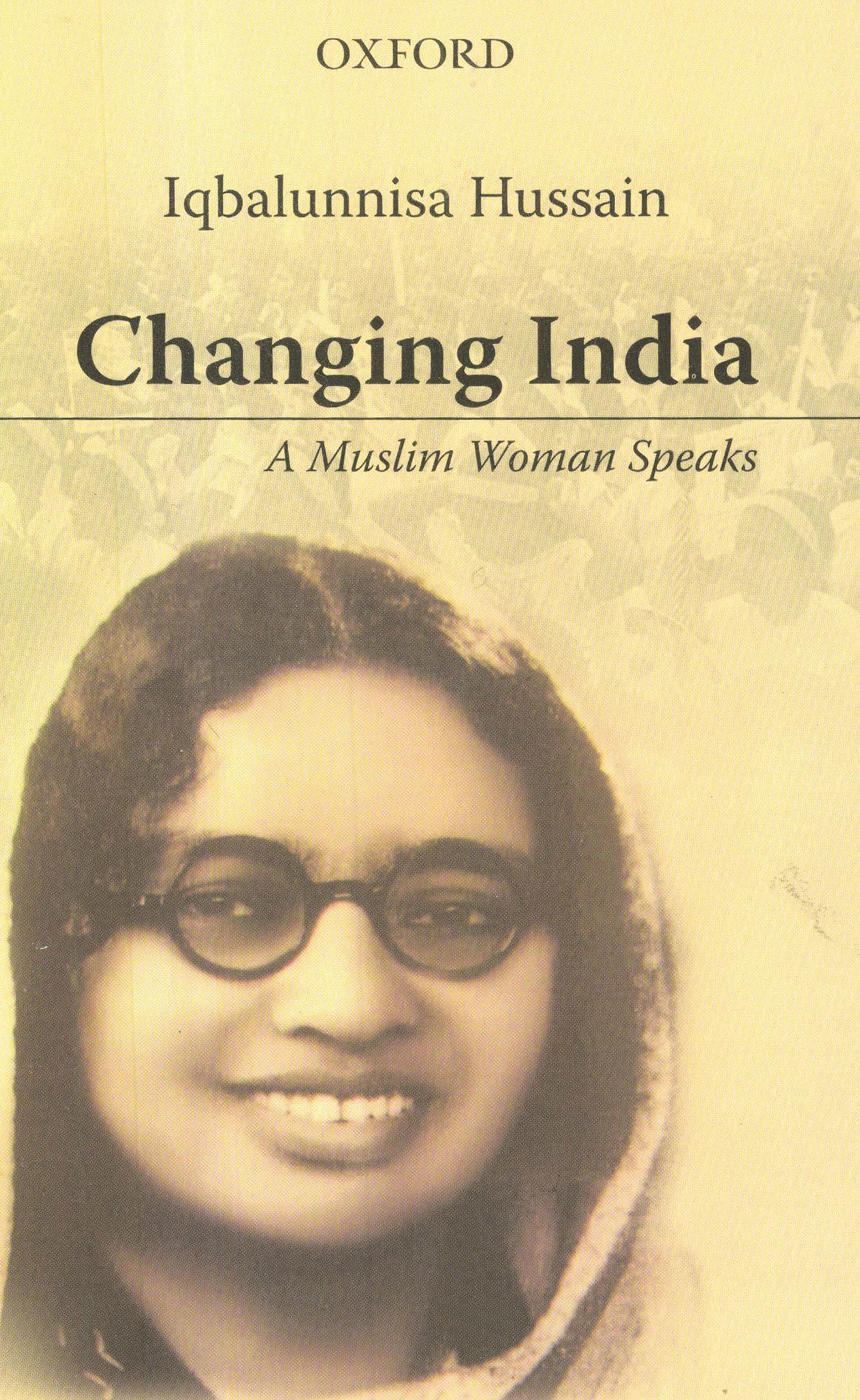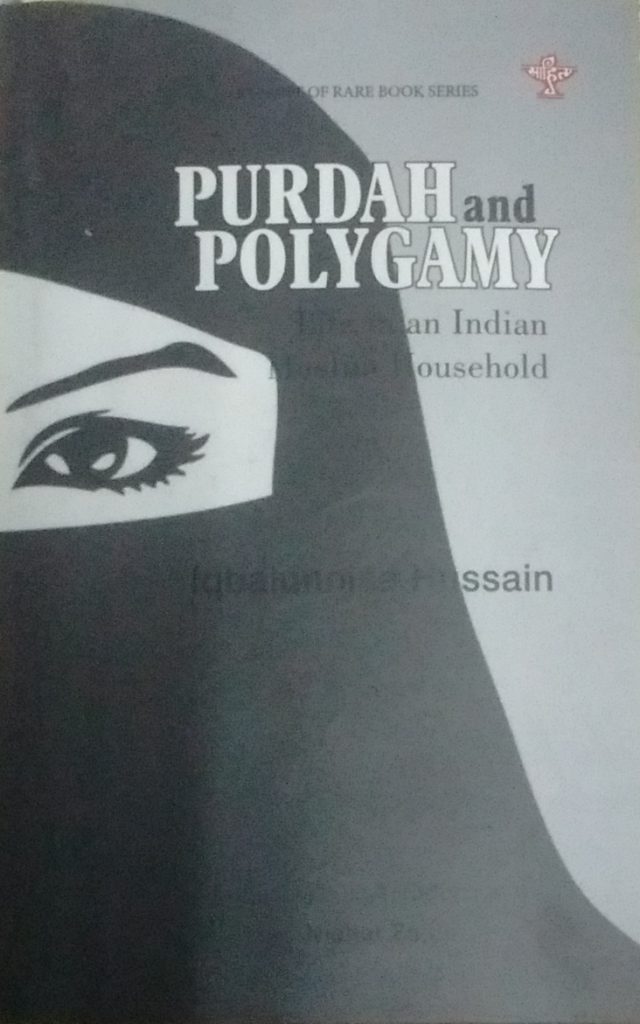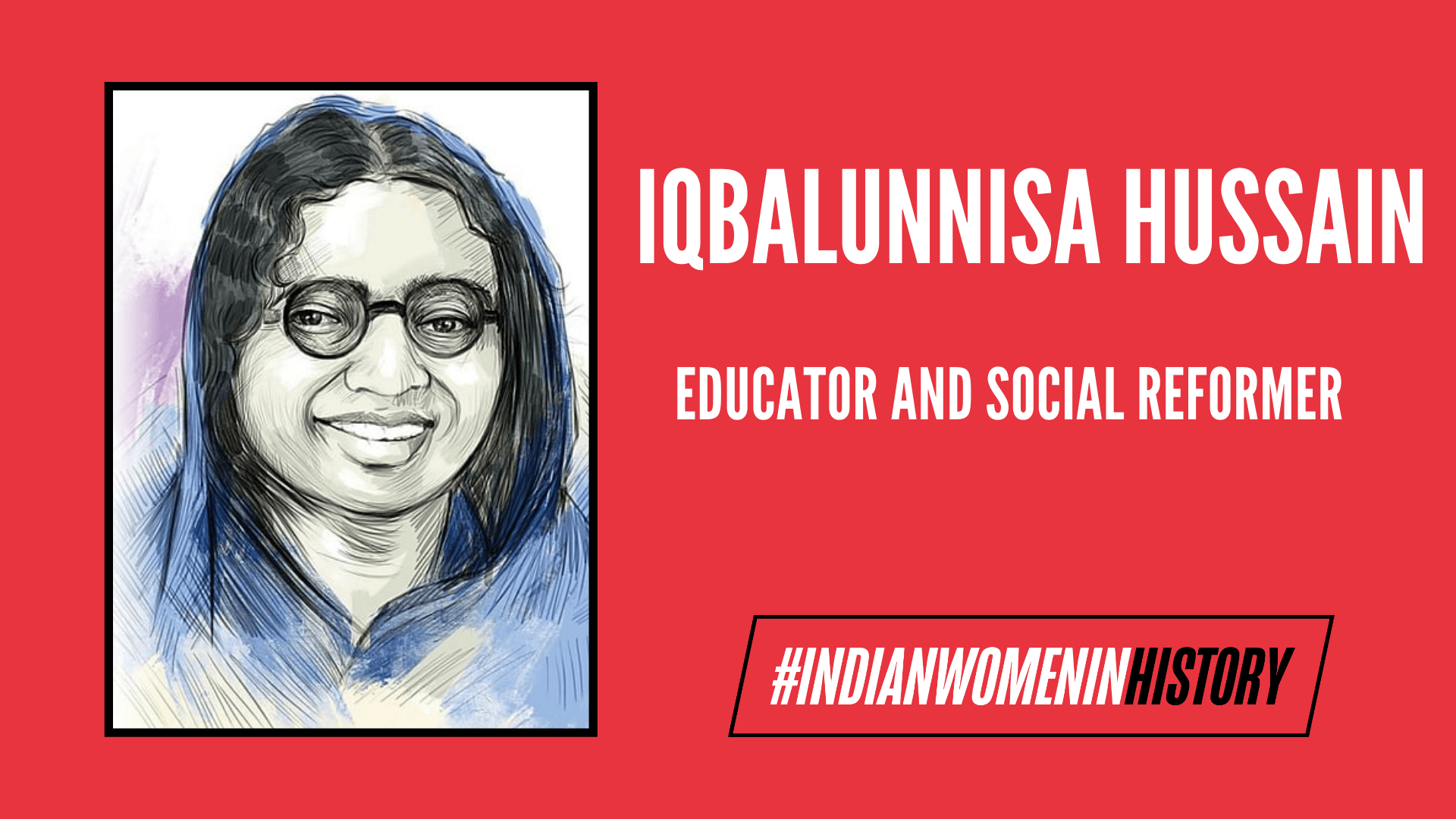Iqbalunnisa Hussain was a feminist and activist who dedicated her life to fighting for the rights of women, focusing on the right to education of Muslim women. Muslim women during the 19th century were mostly trapped within traditional social roles like serving and looking after their family for all their lives. Their lives were dominated by the Muslim Personal Laws, and they were expected to fit into the religious and moral hierarchies that governed them.

Image Source: Dawn
Early life and work: A saga of constant perseverance
Iqbalunnisa Hussain was born in 1897, in Bangalore, Karnataka. She was married off at the tender age of 15. Her husband Syed Ahmed Hussain,a government official at Mysore, was supportive of her desire to study after their marriage. She was an excellent student who completed her Bachelor’s with a gold medal from the Maharani’s College,Mysore. She went on to complete her her post graduation from the University of Leeds,United Kingdom, becoming one of the very few Indian Muslim women of her times to acquire a degree from the UK.
She was well-versed in Urdu and Persian, and later on in English. It was in 1933 that she traveled to England with her eldest son for higher studies. She already had seven children by then, and found it difficult to adjust to the new environment. This did not shake her will to study and focus on her interest in amplifying the need for progressive changes in the society with respect to women.
she points out that it is the inadequacy in the education system that makes women feel psychologically and physiologically unprepared to go out and work. Therefore, she advocated vocational training and development of practical skill sets for women
She was an active campaigner who wrote extensively on the importance of women’s rights. Her essays were later compiled into a book titled Changing India: A Muslim Woman Speaks, published in 1940. In 1994,she authored another book titled Purdah and Polygamy. She focused on critiquing patriarchy by highlighting the narrow mindset of the society that was socially and culturally discriminatory towards women.
Iqbalunnisa Hussain pointed out that the discrimination women face is not a new practice which developed all of a sudden. It is rooted in a history that positions men as individuals with a ‘higher’ status, and women as easily replaceable ‘subordinates’.
Also read: The Status of India’s Muslim Women Amid State-Directed Violence and COVID-19
Resistance in the face of severe backlash from her own community
Iqbalunnisa started off by as the headmistress of a primary school. Her passion for women’s education fueled her to eventually convert it into an Urdu Girl’s Middle School amidst extreme backlash from the society. Furthermore, she significantly contributed towards uplifting the status of Muslim women in the teaching profession by forming an association comprising of Muslim women educators. She also put together a school of home industries for the Muslim women of Bangalore and was a part of the Girl Guide Movement.
In the chapter ‘The Educative Value of The Girl Guide Movement’, from her book Changing India: A Muslim Woman Speaks, she points out that it is the inadequacy in the education system that makes women feel psychologically and physiologically unprepared to go out and work. Therefore, she advocated vocational training and development of practical skill sets for women. She also critiqued practices such as child marriage, that pushed women into domestic responsibilities at very young ages.
It often threatened and made the men of her community insecure to witness her success and merit. But she let nothing keep her from exploring her full potential and leaving a lasting impact on generations of women after her
Iqbalunnisa Hussain faced severe criticism from the authoritative, orthodox members of her own community. She observed that the society, especially families are dominated by the male “heads”, and the Muslim society was no exception. This made the lives of Muslim women difficult and dependent on the choices of the men in the households. Iqbalunnisa felt that mixing culture and tradition together with religion was the biggest hurdle for Muslim women to make proactive choices. She constantly encouraged women of the Muslim community to own their agency and fight for their autonomy that rightfully belonged to them.

Despite the unending ostracism from her community, she successfully represented India at the Twelfth International Women’s Conference in Istanbul, where able, influential women from across the world come together.
Also read: Struggle Against Fascism: Some Reflections On Muslim Women’s Anti-CAA Protests
The legacy of a voice that stood out among others
It was after her return to India from England that she completely dedicated her self to her activism. There were several other contemporary reformers who came out with works that made dissenting voices from within the Muslim community stronger. Khwaja Altaf Hussain authored a novel titled Chup Ki Daad (Voices of the Silent), that highlighted the oppression faced by women. Muslim scholar and human rights advocate Mumtaz Ali along with his wife Mohammadi Begum, founded a newspaper titled Tehzeeb-e-Niswaan, that brought to light problematic practices like child marriage, and stressed on reforms in the areas of marriage and education for women.
Iqbalunnisa Hussain’s writings went in tandem with the other voices, but she was one among the lone female warriors from the Muslim community whose thoughts came from a place of uniqueness and stood out on their own strength. It often threatened and made the men of her community insecure to witness her success and merit. But she let nothing keep her from exploring her full potential and leaving a lasting impact on generations of women after her.
About the author(s)
Mumtaz is a post graduate mass communication student at AJK MCRC, Jamia Millia Islamia, who’s always been passionate towards learning more about human rights and finding solutions for societal issues. According to her concerning matters should be discussed and debated in a way that is easy to understand for a fruitful and constructive change; she wishes to do the same through her writings. She believes in speaking up for what rightfully belongs to each and every human being.




